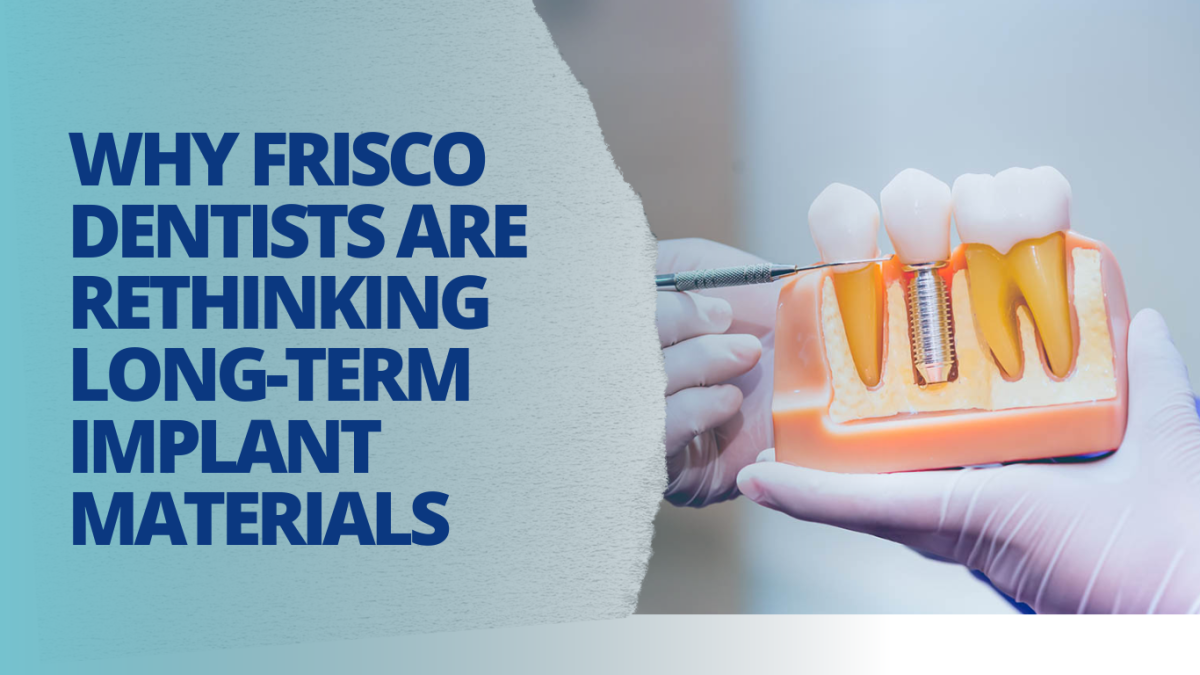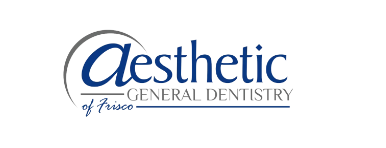Titanium used to be the default when it came to dental implants. Durable, reliable, and trusted by most dentists for decades. But that mindset is starting to change—especially here in Frisco.
Dentists are taking a harder look at what “long-term” really means. It's not just about durability anymore—it’s about how materials interact with the body over time, how they support gum health, and what they might mean for patients 10, 20, even 30 years down the line.
It’s a practical shift driven by real-world results, better materials, and a growing push for more personalized care. In Frisco, that means some clinics are stepping back and asking smarter questions before placing the next implant. And patients are starting to ask those questions too.
What are the concerns with traditional dental implant materials?
Traditional dental implant materials, particularly titanium, have been widely used for decades and are generally considered safe and effective. However, there are a few concerns associated with their use:
- Aesthetic Limitations: Titanium implants are durable but less aesthetic than newer materials. Over time, the metal can cause a grayish tint to the gums, especially in cases where the gum tissue is thin or recedes. This can lead to a less natural appearance, particularly for patients seeking implants in the front of their mouth.
- Risk of Allergic Reactions: While rare, some individuals may have an allergic reaction to titanium. Although titanium is biocompatible for most people, those with certain sensitivities may experience inflammation or discomfort, which can affect the success of the implant.
- Potential for Corrosion: In certain conditions, titanium implants can be prone to corrosion or wear over time. The presence of saliva, bacteria, and other factors in the oral environment may contribute to the gradual degradation of the material, potentially leading to implant failure or the need for replacement.
- Bone Integration Issues: While titanium is known for its strong bond with bone, it may not always integrate seamlessly in every patient. In some cases, there may be insufficient osseointegration (the process by which the bone fuses to the implant), leading to instability or implant failure.
- Metal Sensitivity: Some patients are generally sensitive to metals in their bodies, which may affect their experience with titanium implants. Although rare, this sensitivity can cause discomfort or irritation, and it may lead some patients to seek alternatives, such as zirconia.
As dental technology advances, these concerns are prompting a reevaluation of implant materials, leading to the exploration of options like zirconia, which offers improved aesthetics, fewer corrosion risks, and better biocompatibility.
Why are Frisco dentists exploring alternatives to titanium implants?
Frisco dentists are exploring alternatives to titanium implants for several reasons as advancements in materials science and patient preferences continue to evolve. Here are some of the key factors driving this exploration:
- Aesthetic Appeal: When gum tissue weakens or recedes, titanium implants can turn gums gray. In the front of the mouth, aesthetics matter more. Zirconia is naturally white and blends well with teeth and gums, making it more natural and attractive.
- Improved Biocompatibility: Most patients tolerate titanium well and may have allergic responses. Biocompatible zirconia ceramic has fewer side effects, so metal allergy sufferers may like it.
- Reduced Risk of Corrosion: Titanium implants are durable but can corrode in the oral environment, especially if exposed to germs or acid. Zirconia implants, made of ceramic, are more durable and corrosion-resistant.
- Better Bone Integration: Titanium has good osseointegration; however, some research suggests that zirconia may be better. The smoother surface and improved biocompatibility of zirconia may help bone recover around the implant.
- Patient Preference for Metal-Free Options: Some patients avoid metal owing to long-term health or environmental concerns. Zirconia, a non-metallic option, meets these patients' metal-free needs, making it a popular titanium replacement.
As Frisco dentists continue to embrace these newer materials, patients benefit from a wider range of options that offer improved aesthetics, safety, and long-term success.
Are zirconia implants better for long-term dental health?
Zirconia implants offer several benefits for long-term dental health, though whether they are "better" than titanium implants can depend on individual patient needs and preferences. Here's why zirconia implants might be a superior choice for some:
- Biocompatibility: Zirconia is biocompatible and less irritable than titanium. Medical patients with metal sensitivity or worries about metals' long-term impacts should take note.
- Aesthetic Benefits: Zirconia is a white ceramic, which provides a more natural look, especially for patients with thin gum tissue. It prevents the grayish discoloration that can sometimes occur with titanium implants, particularly in the front of the mouth.
- Corrosion Resistance: Unlike titanium, zirconia doesn’t corrode in the moist, bacterial-rich oral environment. This increases the implant’s longevity and reduces the risk of implant failure due to material degradation.
- Improved Bone Integration: Some studies suggest zirconia implants may offer superior osseointegration (the process by which bone fuses with the implant). This could lead to better long-term stability and a lower risk of implant failure.
While zirconia implants offer these advantages, they may not be suitable for everyone. Patients should consult with their dentist to determine the best option based on their specific needs and circumstances.
How do new implant materials impact recovery and success rates?
New implant materials like zirconia can positively impact recovery times and success rates in dental implant procedures. Here’s how they influence the process:
Faster Recovery Times
- Zirconia Implants: The smoother surface of zirconia implants helps reduce gum tissue discomfort during healing. Compared to titanium implants, this may lessen edema, bleeding, and discomfort, speeding healing.
- Biocompatibility: Zirconia’s excellent biocompatibility helps the body heal more naturally, as it is less likely to trigger immune responses or inflammation. This can further promote a smoother recovery process.
Better Bone Integration
- Improved Osseointegration: Zirconia's surface may improve bone bonding, stabilizing the implant. This may accelerate implant integration into the jawbone, increasing the success rate.
- Less Risk of Implant Failure: Newer materials like zirconia have been shown to have a similar or better long-term success rate, especially in terms of bone integration and durability.
Reduced Risk of Complications
- Fewer Infections or Rejection: Materials like zirconia are less prone to corrosion and bacterial accumulation, reducing the risk of infection or rejection, which can often delay healing and impact success rates.
Aesthetic Benefits Leading to Patient Satisfaction
- Better Cosmetic Outcomes: Zirconia’s natural appearance, especially in visible areas, may increase patients' satisfaction, which can influence how they perceive the implant's long-term success. Cosmetic success can encourage proper post-surgery care, positively affecting recovery and implant longevity.
New implant materials, such as zirconia, can enhance recovery times and improve long-term success by offering superior biocompatibility, better bone integration, and reduced post-surgical complications. However, patient factors and care should always be considered to ensure the best possible outcome.
We Don’t Just Place Implants—We Choose What’s Best for You
When it comes to your smile, the materials behind the scenes matter just as much as the results you see in the mirror. At Aesthetic General Dentistry of Frisco, we don’t follow trends—we follow the facts. Our team is part of the growing number of dental professionals taking a closer look at what goes into your mouth and how it holds up over time.
We believe long-term health and comfort should drive every decision we make, including the type of implant materials we use. Whether you're considering your first implant or replacing an old one, we're here to walk you through the best options for you—not just what's standard.
If you're ready for care that looks beyond the surface, we’d love to help. Schedule a consultation with us at Aesthetic General Dentistry of Frisco and see why more patients are asking smarter questions—and getting better answers.




